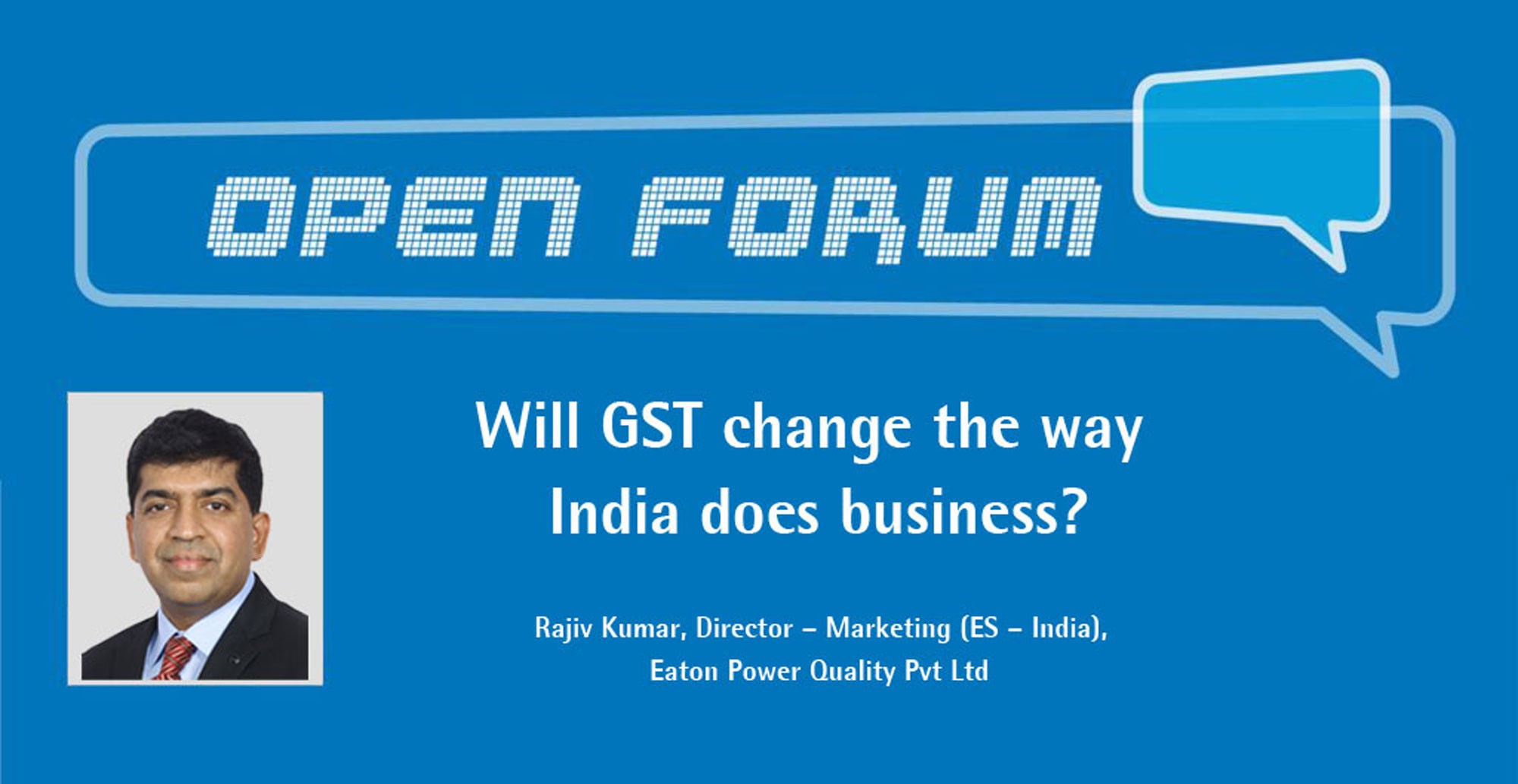Will GST change the way India does business?
By EPR Magazine Editorial February 11, 2017 12:46 pm IST
By EPR Magazine Editorial February 11, 2017 12:46 pm IST

Rajiv Kumar, Director – Marketing (ES – India), Eaton Power Quality Pvt Ltd

Yes. Introduction of GST as a unified tax system will fundamentally change the existing structure of procurement and distribution arrangements. Overall we can expect input costs and inventory costs of distribution to be reduced significantly resulting in increased profitability across the value-chain. Appropriate measures to ensure smooth and successful transition should include comprehensive and accurate reconfiguration of accounting and IT systems, training and compliance enforcement
___________________________________________________________________________________________________________________
Gautam Seth, Joint Managing Director, HPL Electric & Power Ltd

GST will be a game changing initiative for the Indian economy. Implementation of GST will bring about a uniform and comprehensive tax regime across the country, immensely benefiting the business and consumers alike by bringing about more transparency and compliance. GST will ensure India finally emerges as one common market with double taxation and the cascading effect of multiple levies eliminated. The consumers will benefit from lower prices and this will spur higher consumption. GST will also increase the tax base through better compliance. All this will improve business efficiencies of individual companies, while also creating an overall environment which promotes ease of doing business in the country. For the manufacturing sector, the implementation of GST will have a positive impact on the manufacturing sector, making it more competitive and efficient.
_________________________________________________________________________________________________________________
Dinesh Aggarwal, Joint Managing Director, Anchor Electricals
The govt’s impetus towards empowering the manufacturing industry is commendable. Many initiatives such as ‘Make in India’ would give a big boost to the strengthening and growth of industry. GST implementation is one of those moves that will help facilitate ease of doing business within the country and bring in the much required cost efficiencies and transparency in the various transactions. This will of course benefit the end-user in terms of getting more competitive prices for the final products. It will also lead to increased process efficiency for manufacturers, suppliers and the distributors and enable them optimise their inventories. Revenue collection from taxes will rise and tax evasion will be curbed due to increased transparency in the system. While on a short term the concern of increased working capital could hit the manufacturers, on a long term it is a significant move to strengthen the system, make it more efficient and make it easier for businesses to operate.
___________________________________________________________________________________________________________________
Hartek Singh, Chairman and Managing Director, Hartek Group

Definitely! GST will transform the business landscape of India by bringing about uniformity in taxation throughout the country, much to the advantage of investors and traders who have remained bogged down by multiple taxes and ambiguity over tax regulations. In fact, GST will turn out to be a game changer for all sectors of the economy in the long run. At the same time, the government should address the concerns associated with GST by announcing measures which boost investments and limit the possible fallout of the new tax on the renewable energy segment. Special incentives should be announced for the renewable energy segment to offset the possible increase in project costs owing to GST. However, it is rather premature to foretell the impact of GST on the power sector as the GST Council is still in the process of giving a final shape to the new tax regime.
We use cookies to personalize your experience. By continuing to visit this website you agree to our Terms & Conditions, Privacy Policy and Cookie Policy.